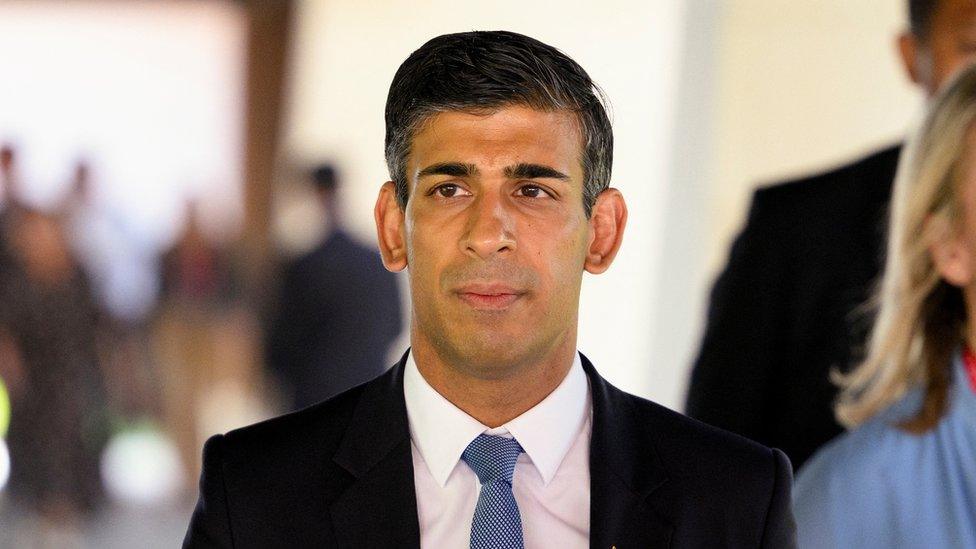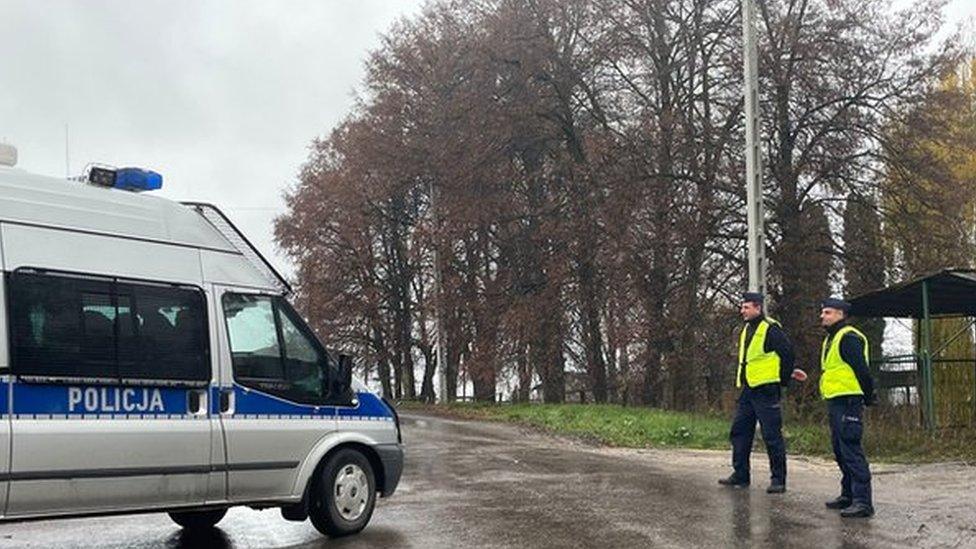Rishi Sunak's G20 meeting with Chinese president cancelled
- Published

A planned meeting between Rishi Sunak and Chinese President Xi Jinping has been cancelled after a missile blast in Poland.
The encounter, at the G20 summit in Indonesia, was due to be the first in-person meeting between a British PM and Chinese leader since 2018.
Early reports had suggested Russia was to blame for the blast, near Ukraine. Moscow has denied the allegations.
A No 10 spokesperson blamed "scheduling issues" for the cancellation.
Chinese foreign ministry spokesperson Mao Ning said she had no information to offer on the cancellation of the meeting.
Polish President Andrzej Duda told reporters it remained unclear how the blast had occurred, and said investigators were evaluating all possibilities.
"We do not have any conclusive evidence at the moment as to who launched this missile… it was most likely a Russian-made missile, but this is all still under investigation at the moment," he said.
US President Joe Biden has said it is "unlikely" the missile was fired from Russia.
Speaking at press conference at the summit, Mr Sunak said the UK and its allies were still trying to "get to the bottom of what happened" and it was "right that we let that process conclude".
Relations with China
The meeting between Mr Sunak and President Xi was set to take place against a backdrop of worsening relations between London and Beijing in recent years over security, Hong Kong and China's human right record.
Downing Street had said the prime minister would "encourage China to use its place on the global stage responsibly to resolve geopolitical tensions, ensure regional stability and play its part in tackling the devastating global impact of the war in Ukraine".
Commons Foreign Affairs Committee chairwoman Alicia Kearns said it was "a shame" that the PM's meeting had been cancelled, adding that dialogue was "vital".
"The trust deficit is palpable at this time, and meeting was important to set out our positions and build the ground to prevent miscalculations," she said.
Some Conservative MPs have called on the government to take a tougher stance on China.
Last year five MPs and two peers were sanctioned by China after raising concerns about human rights abuses against the Uyghur Muslim minority group in Xinjiang.
Mr Sunak's predecessor Liz Truss was reportedly planning to re-categorise China as a "threat" to the UK as part of a foreign policy review.
On Tuesday, asked whether he would do the same, Mr Sunak told reporters: "I think that China unequivocally poses a systemic threat - well, a systemic challenge - to our values and our interests and is undoubtedly the biggest state-based threat to our economic security."
But he added that it would not be possible to resolve global challenges like climate change or the war in Ukraine "without having a dialogue with them".
Related topics
- Published16 November 2022
